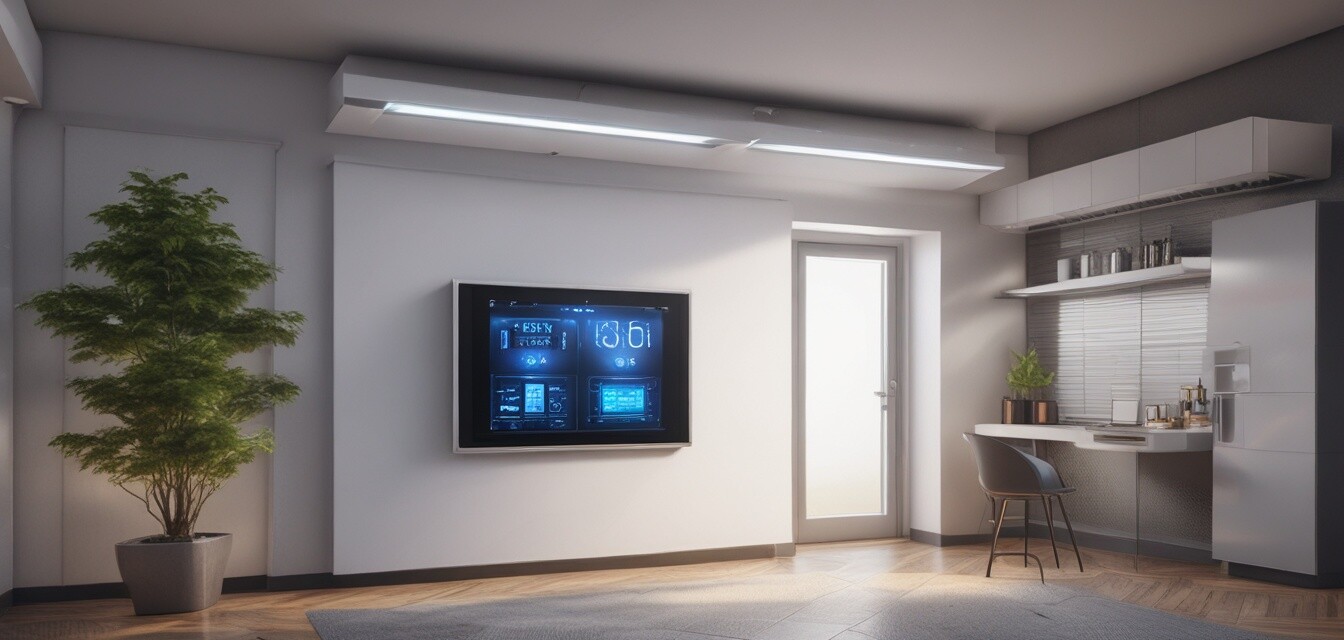
The Future of Energy Efficient HVAC Systems
As we step into a new era of energy-efficient technology, the HVAC (Heating, Ventilation, and Air Conditioning) industry is poised for some exciting advancements by 2025. This article will explore the latest innovations and trends in HVAC systems that focus on energy efficiency, along with features such as smart thermostats.
Key Takeaways
- Growing trend of smart thermostats to optimize energy usage.
- Integration of renewable energy sources in HVAC systems.
- Advancements in predictive maintenance technologies.
- Increased focus on sustainability and carbon footprint reduction.
- Improved air quality features in modern HVAC systems.
Understanding HVAC Systems
HVAC systems are critical for maintaining indoor comfort throughout the year. Traditional systems often consume substantial amounts of energy, leading to high utility bills and a larger carbon footprint. With energy efficiency becoming worldwide priority, manufacturers are now focusing on innovative solutions.
What makes HVAC systems energy efficient?
Energy-efficient HVAC systems are designed to use less energy while delivering the same or improved comfort levels. This is achieved through various features:
- High SEER (Seasonal Energy Efficiency Ratio) ratings
- Variable-speed motors that adjust airflow based on demand
- Enhanced insulation and sealing
- Smart technology integration
Trends Shaping the Future of HVAC Technology
Significant advancements are on the horizon, many driven by the need for sustainability and smart homes. Here are some key trends we can expect to see in 2025:
1. Smart Thermostats
Smart thermostats are making waves in HVAC technology. These devices learn users' habits and adjust temperatures accordingly. Some features include:
- Remote control via smartphone apps
- Energy use tracking and optimization
- Integration with other smart home devices
Learn more about how to make the most of smart technology in your home.
2. Renewable Energy Integration
Modern HVAC systems increasingly incorporate renewable energy sources, such as solar power. The benefits include:
- Reduced reliance on fossil fuels
- Lower operational costs
- Enhanced sustainability credentials
For insights on renewable energy, check our section on buying guides for energy-efficient appliances.
3. Predictive Maintenance Technologies
Another exciting trend is the adoption of predictive maintenance technologies. These systems monitor performance and can foresee potential failures before they become major issues. Advantages include:
- Reduced downtime
- Cost savings on repairs
- Extended equipment lifespan
Innovative Features to Look Out For
As we approach 2025, several innovative features are expected to be commonplace in the market:
| Feature | Description |
|---|---|
| Advanced Filtration Systems | Enhancing indoor air quality by removing more pollutants. |
| Variable Refrigerant Flow (VRF) | Allows for customized climate control per zone, improving efficiency. |
| Smart Vent Systems | Control airflow and temperature to specific areas as needed. |
Importance of Sustainability in HVAC
As consumers become more environmentally conscious, HVAC manufacturers are responding by implementing practices that reduce carbon footprints. This shift benefits the planet while meeting consumer demand for eco-friendly solutions.
Conclusion
The future of HVAC systems looks bright with numerous advancements aimed at enhancing energy efficiency. From smart thermostats to renewable energy integration, these technologies will benefit both users and the environment. Keeping up with these trends will ensure that you make informed decisions when it's time to upgrade or replace your HVAC system.
Pros
- Energy savings due to improved technology.
- Enhanced comfort through smart control features.
- Positive environmental impact with reduced emissions.
Cons
- Initial investment can be higher than traditional systems.
- Need for regular software updates in smart systems.
Tips for Choosing Energy Efficient HVAC Systems
- Research the SEER ratings for various units.
- Consider systems that incorporate eco-friendly technologies.
- Consult professionals for installation to maximize efficiency.
For more information on energy-efficient appliances, visit our complete list of air conditioners, dishwashers, and washing machines for your energy-saving needs.
